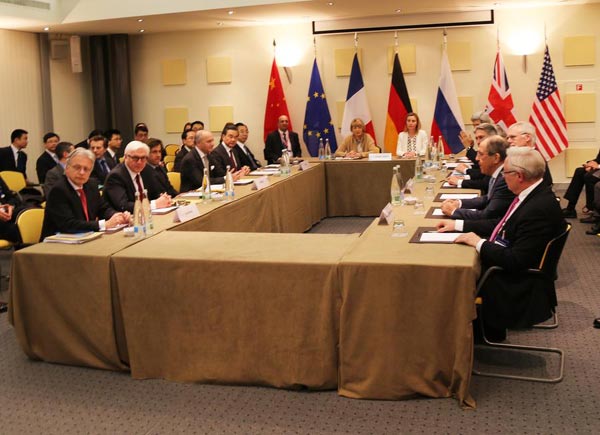Iran's Khamenei demands all sanctions end when nuclear deal signed
(Agencies) Updated: 2015-04-10 10:27
The tentative accord was a step towards a settlement that would allay Western fears that Iran could build an atomic bomb, with economic sanctions on Tehran being lifted in return.
Negotiators from Iran, the United States, Germany, France, Britain, Russia and China will resume negotiations in the coming days to pave the way for a final deal.
One problem is that Iran and the world powers may have different interpretations on what was agreed in the framework accord - a point Khamenei made evident.
"Americans put out a statement just a few hours after our negotiators finished their talks ... this statement, which they called a 'fact sheet', was wrong on most of the issues." Khamenei said.
ENMITY AND MISTRUST REMAIN
Since relations with Washington collapsed after Iran's 1979 Islamic revolution, enmity towards the United States has always been a rallying point for Iranian hardliners.
"I was never optimistic about negotiating with America... nonetheless I agreed to the negotiations and supported, and still support, the negotiators," Khamenei said to chants of "Death to America."
"I support a deal that preserves the interests and honour of Iran."
The United States and its Western allies say it is vital that Iran fully cooperate with a U.N. International Atomic Energy Agency (IAEA) investigation into past nuclear activities that could be related to making weapons.
Iran for its part has said that "possible military dimensions" (PMD) are an issue it will not budge on.
"PMD is out of the question. It cannot be discussed," an Iranian official said. This issue has not been resolved.
Khamenei ruled out any "extraordinary supervision measures" over Iran's nuclear activities.
"Iran's military sites cannot be inspected under the excuse of nuclear supervision," he said.







